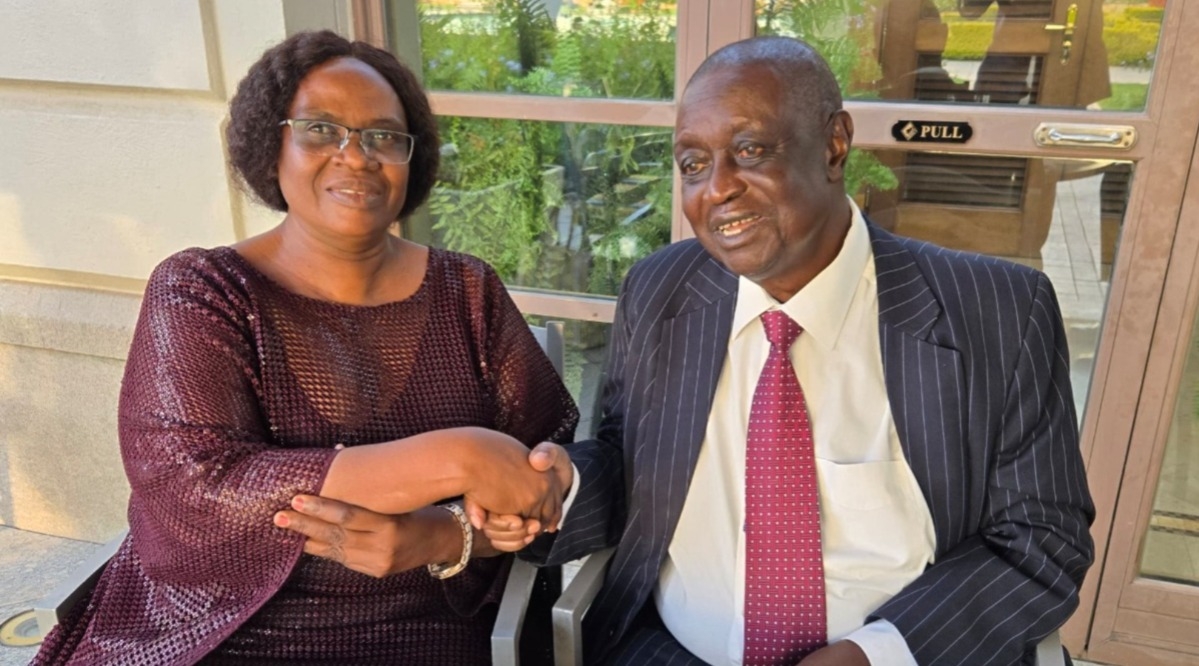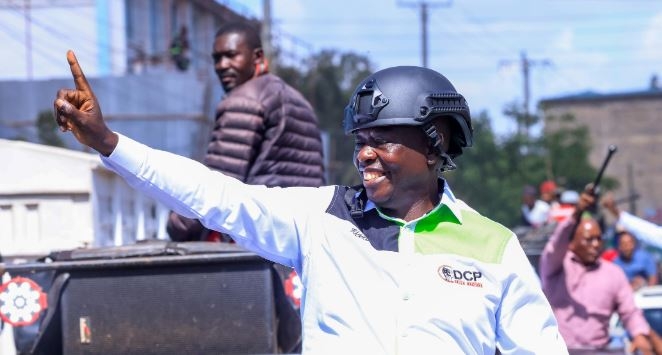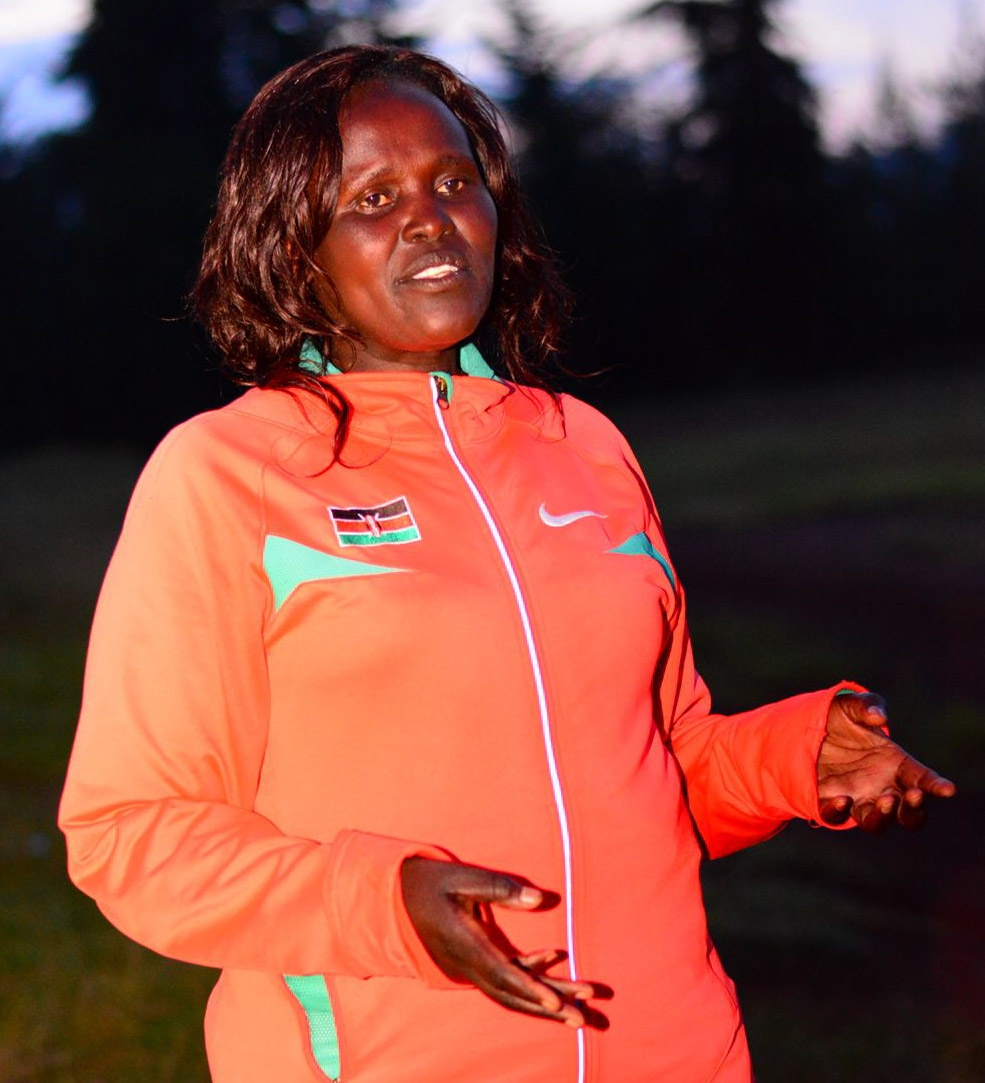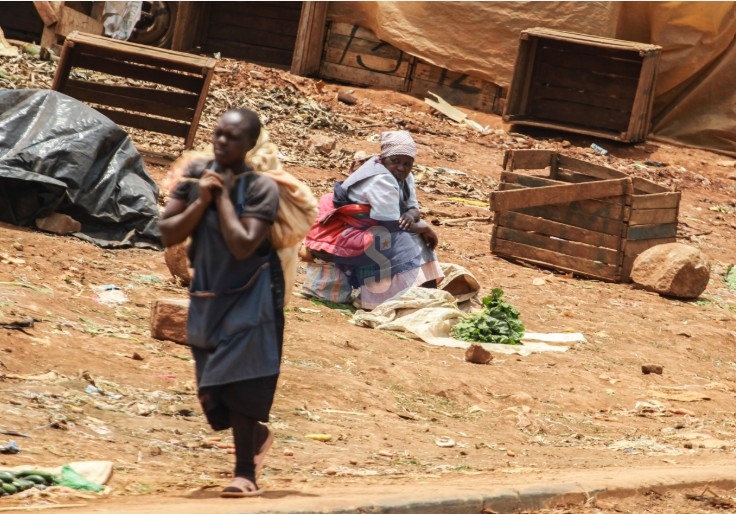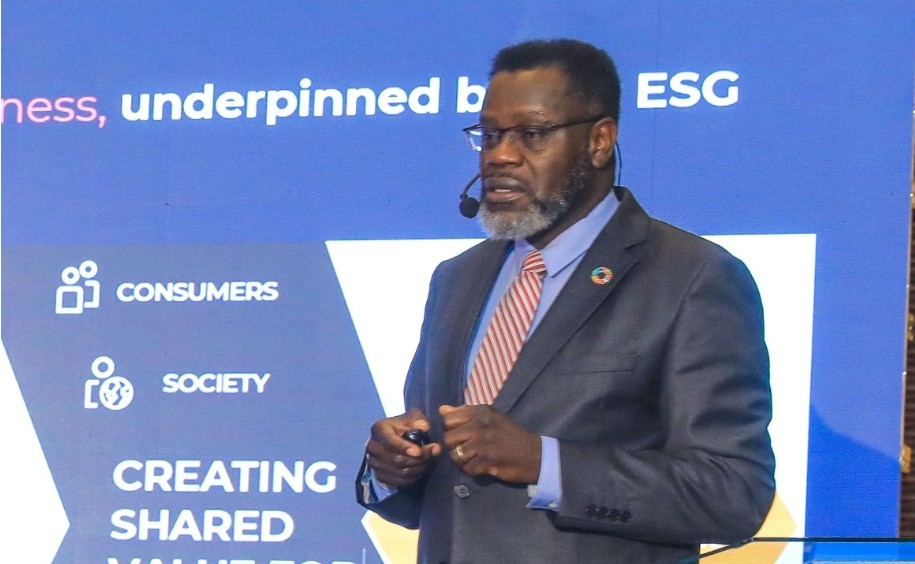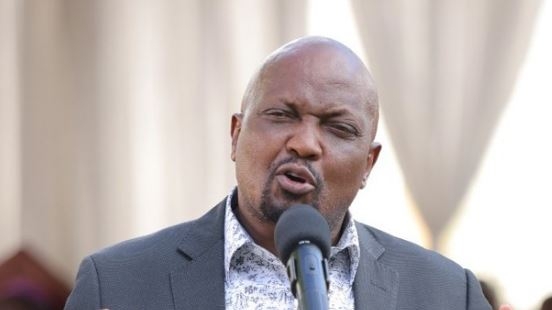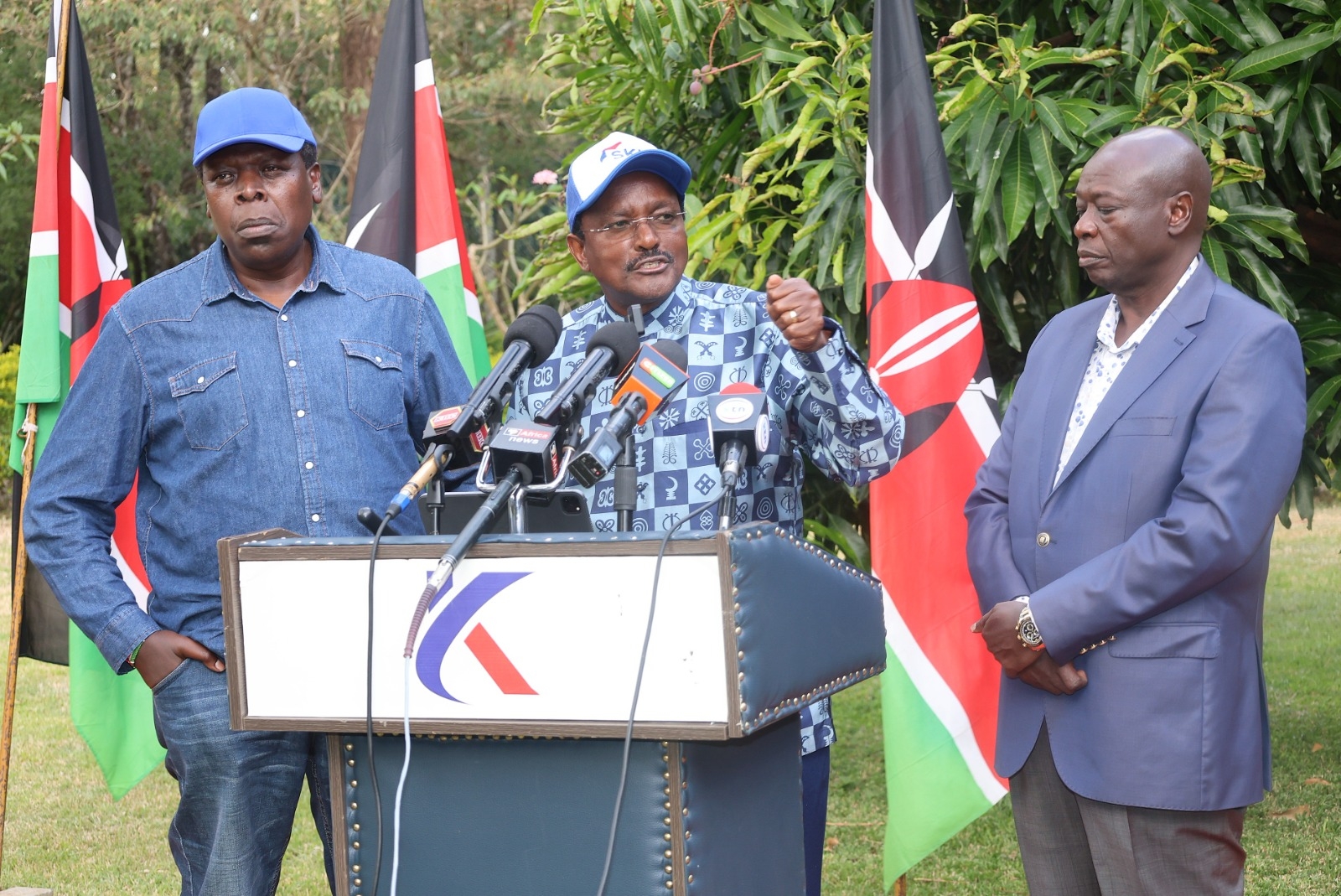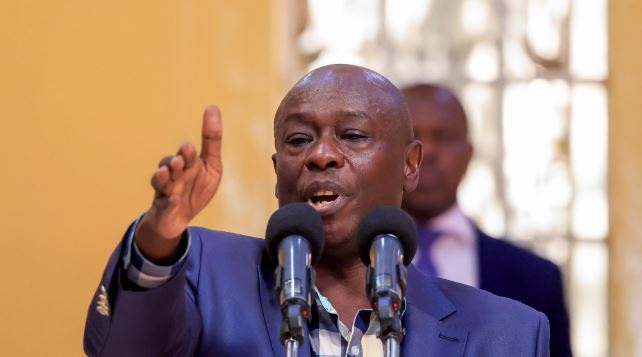For two consecutive editions of the Summer Paralympic Games, Team Kenya has walked away without a gold medal —managing only a single medal on both occasions.
In Tokyo 2020, the country's lone triumph came through Nancy Chelangat, who earned a bronze medal in the women’s 1,500m T11 event.
Chelangat set a personal best time of 4:45.58 to complete the podium, trailing South Africa’s Louzanne Coetzee (4:40.96) and Mexico’s Olivia Rodriguez, who set a world record time of 4:37.40).
With only one medal to its name, Kenya ranked a dismal 78th overall at the Tokyo Games, placing it alongside the lowest nations like Bosnia, El Salvador, Montenegro, Oman, Qatar, Saudi Arabia and Uganda.
The 2024 Paris Paralympics did little to improve Kenya’s fortunes with Samson Ojuka winning the nation's solitary medal in men’s long jump T37, where he cleared 6.20m to settle for silver.
Ojuka trailed Argentina’s Brian Impellizzeri (6.42m) and was just ahead of Brazil’s Evangelista Cardo (6.20m).
In Paris, Kenya once again found itself languishing, this time in 75th place, despite fielding its largest-ever team of 14 athletes across five disciplines.
Algeria led the African charge with 11 medals (six gold and five bronze) followed by Tunisia (27th with 11 medals), Morocco (31st with 15 medals), Nigeria (40th with seven medals), Egypt (41st with seven medals), Ethiopia (44th with three medals), South Africa (46th with six medals) and Namibia (61st with two medals).
Looking back at the nation’s proud Paralympic history, it’s clear the current drought is a sharp departure from past glories.
At the 1988 Seoul Paralympics, even without a gold medal, Kenya was still able to amass five medals (four silver and one bronze) to rank in position 41.
The silver medallists were Samson Mosoti (men’s javelin 5), Grace Muteti (women’s javelin 2), Lucy Njoroge (women’s javelin 3) and Patricia Kihungi (lawn bowls) with Lucy Wanjiru scooping bronze in the women’s shot put 3.
In its first-ever Paralympic appearance at Heidelberg 1972, John Britton won gold in swimming, marking the nation’s arrival on the global stage.
Kenya’s most successful campaign came in Beijing 2008 when the country returned home with nine medals (five gold, three silver and one bronze).
Henry Wanyoike, a double Paralympic champion and multiple world record holder, believes the root of the problem lies in inadequate preparation and poor infrastructure.
“The athletes did not get sufficient training time. In Paris, they came up against athletes who had spent an entire year preparing and focusing on the Paralympics. Our huge downfall is that our Para-athletes are only brought together a few weeks before major competitions. Other than that, every athlete trains alone wherever they are.”
“We can't expect to beat countries who have specialized camps for para-athletes where they get to train together and motivate each other,” he added.
The lack of state-of-the-art training equipment and facilities is also a huge hindrance to Kenya’s performance on the global stage.
“Our training facilities are also subpar. We don’t have facilities sufficient to train our para athletes. Some of our athletes lack proper wheelchairs which are crucial for their training.”
While the government and the Kenya National Paralympics Committee (KNPC) made an effort by establishing a pre-Games training camp in Compiegne, France, Wanyoike insists it was “too little, too late.”
He highlighted the huge delegation that accompanied the athletes to the Paris Games, adding that the federation should have done more to qualify more athletes who would take up those delegation slots.
“There were a lot of delegates in Paris as compared to the number of athletes who were there. The federation needed to do more to ensure more athletes secured qualification,” he noted.
Wanyoike also points to administrative shortcomings, particularly in the lead-up to the Tokyo 2020 Games. He accused the KNPC of selecting athletes based on favouritism rather than merit.
“The Tokyo 2020 Games were just marred with controversies. The KNPC administration had overstayed their tenure. The committee also failed to pick people based on merit,” Wanyoike said.
Beyond these technical issues, Wanyoike touched on the deeper emotional toll felt by Kenya’s Paralympians. The lack of fanfare upon their return compared to their Olympic counterparts, he believes is a significant blow to team morale.
“The Olympics team was well received, a lot of fans came out to support the team upon their arrival, unlike the case with the Paralympics team. Not getting that support from the fans is demoralising for a lot of us athletes. It lowers an athlete’s drive,” he noted.
Wanyoike stresses that more needs to be done to identify and nurture talent at the grassroots level.
“We need to nurture talent from the grassroots. The federation needs to set up programmes where they visit schools for the disabled and earmark top talents. There are a lot of talented young Para-athletes in the country who have not been discovered yet,” he noted.
"I have been to schools in Likoni, Mombasa and I was told that there are alot of promising kids with disabilities. If these kids are nurtured and given that platform to sharpen their talents, we have a big chance of developing raw talent from a young age."
Wanyoike believes the involvement of former Paralympic champions like himself in the training programs for future athletes would bring invaluable expertise.
“We need legends who’ve competed at the highest levels to mentor the young athletes. That’s the only way we’ll see positive results,” he noted.
Support—both financial and emotional—remains a key factor in the success of Kenya’s Paralympians.
Unlike their Olympic peers, many Para-athletes lack the security of employment in national institutions such as the police or military, leaving them dependent on well-wishers and government support.
“A lot of para-athletes are unemployed, unlike the other athletes who are serving in either the national police, KDF or other organisations. These athletes depend on government support because even the Paralympics unlike the Olympics don’t have sponsors.”
Participation in global youth championships will also see the growth of talent in the country. "The federation and government need to send our young para-athletes to international youth Championships and not just wait for the Commonwealth Games and World Championships."
"Many countries like the US send their young budding athletes to youth competitions to sharpen their skills and give them courage that is vital for participation on the big stages," he stated.
Wanyoike advised that patience and perseverance are also key for young athletes, citing his world records— some of which stand to date.
“A lot of the young athletes are ‘fast and furious’. They are not patient enough to give their journey time. The reason I was able to accomplish so much during my time was because I was determined and never gave up. That is why I broke the world records and some still stand to date,” he said.
During the Athens 2004 Paralympics, Wanyoike won two gold medals in the 5,000m T11 (15:11.07) and the 10,000m T11 (31:37.25)— breaking the World records in both events.
In 2005, Wanyoike broke the visually impaired marathon world record twice in the space of a week.
He first set the mark of 2:32:51 at the London Marathon on April 17 before knocking 80 seconds off the mark, seven days later at the Hamburg Marathon.
In what was an excellent year for Wanyoike, he also went on to win two marathon titles in Wetzlar (1:14:41) and Singapore (1:16:07).
Wanyoike won Kenya’s first gold medal in the 5,000m T11 at the Paralympics in Sydney 2000 with a time of 15:46.29, outpacing Britain’s Robert Mathews (16:09.00) and Mexico’s Nicolas Ledezma (16:23.44).
Under his belt, Wanyoike also holds two titles from the 2003 (2:49:03) and 2004 (2:33:20) Boston Marathon.
He is a third-place finisher in the 2005 Mallorca Half Marathon (1:15:24) and the 2005 Hannover Half Marathon (1:11:25).
Former Paralympian Henry Nzungi highlighted a shift in technology which the country has failed to keep up with.
"Middle and long-distance athletes need to do gym work to build up their strength and endurance. These gyms are not easily available to para-athletes at the moment. If we had one or two gyms in each county for persons with disability, it would be impactful."
He added: "New running shoes have come up now which enable athletes to run faster times but they are too expensive. Many para-athletes can't afford it and that also becomes a big challenge."
Nzungi has represented the country at the London 2012 Paralympics and Rio 2016 Games in the men's 400m T12 and 200m T12. He also featured at the London 2017 and Dubai 2019 World Para Athletics championships.
He believes insufficient preparations caused Kenya's problems in the middle and long-distance races at the Paralympics.
"Our middle and long distance athletes did not have enough speed work preparations. They could not keep up with the high-paced races in Paris," he noted.
For the first time since the Sydney 2000 Paralympics, Kenya has failed to bag a medal in the middle or long-distance races.
Wanyoike won the 5000m T11 in Sydney 2000 whereas Chelangat's 1500m bronze at the Tokyo 2020 was Kenya's last triumph in the middle and long-distance races
Nzungi echoed Wanyoike's sentiments calling on early recruitment of para-athletes.
"We need to find athletes in their 20s or even at lower ages and nurture them to compete at the big stages."
He pointed out a lack of diversity in the Paralympics as a major setback for the country in terms of medal prospects.
"We lack diversity of disciplines in the Paralympics. Since Kenya's first appearance, we have only been represented in athletics and a few other disciplines like powerlifting. If we have more disciplines at the Los Angeles Games, we will have a fighting chance to secure more medals."
KNPC secretary-general Stanley Mutuma believes laying down a strategic plan that will involve partnerships with sports federations, educational institutions for the disabled and corporate sponsors will ensure Kenya’s success at the 2028 Los Angeles Games.
The goal is to expand Kenya’s talent pool, particularly in athletics, cycling and powerlifting.
“We’ll work closely with Athletics Kenya, Cycling Federation and other sports bodies to ensure para-athletes are included in our competition calendars,” Mutuma explained after the close of the Paralympic Games in Paris.




